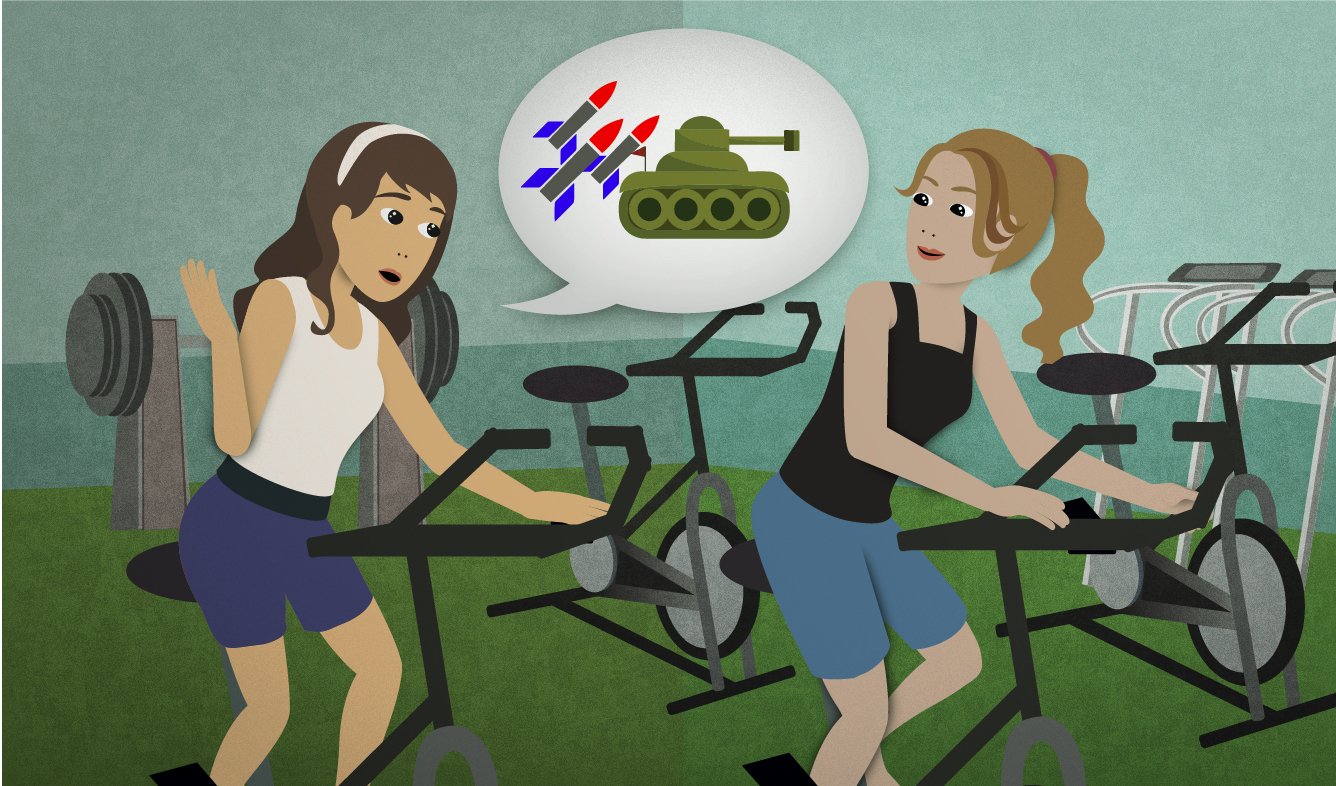“I do agree with him on defense, though.”
You're discussing politics with someone you know at your local gym. She asks you what you think of the prime minister. You tell her that you don't like many of his policies. But you say this because you do think one of his ideas is good.
I do agree with him on defense, though.
Want Video and Sound? Follow us on YouTube

I do (something)
In a normal sentence, you don't include "do" before the verb:
I agree with him on defense.
But when your sentence is contrasting with something else that you just said, you should use the word "do" and place a strong stress on that word when saying it:
I don't think he's that good-looking. I do like his hair, though.
agree with (someone) on (a topic)
This is the standard English phrase for saying that you have the same opinion as someone else about a certain topic.
I agree with Jamie on hiring a new salesperson. I think it would be a great idea.
defense
"Defense" is a a category of government which includes the military. Saying that you agree with the Prime Minister on defense means that you agree with his plans for wars, the way he spends money on the military, and so on.
(sentence), though
"Though" is similar to "but" and "however". It is usually used at the end of the sentence in spoken English:
I have a pilot's license. I haven't flown in almost 5 years, though.
In written English, it's more appropriate to use it between clauses:
I have a pilot's license, though I haven't flown in almost 5 years.
"However" can be used in the same way:
I do agree with the Prime Minister on defense, however.
"Though" is more casual than "however", though.
